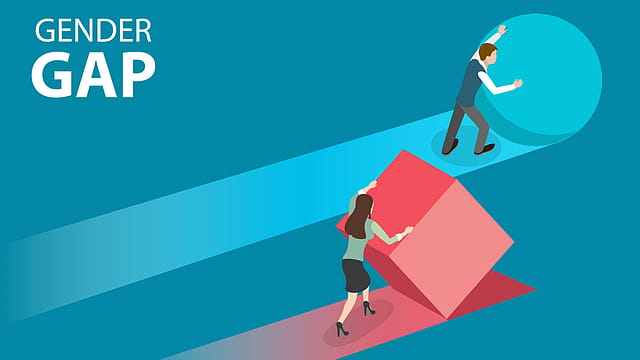India’s rank marginally dips to 129 on WEF’s gender gap report
ADVERTISEMENT

India, with a population exceeding 1.4 billion, now sits at 129th rank among 146 countries, having bridged 64.1% of its gender divide, according to the World Economic Forum (WEF’s) latest Global Gender Gap report, released on June 12. In 2024, India experienced a small setback in its pursuit of gender equality. This marks a slight dip from the previous year's performance, sliding down two spots in the rankings.
India's ranking in the gender gap index is attributed to declines in educational attainment and political empowerment. While the country has made gains in economic participation, there's still room for improvement in closing gender gaps in various areas like legislative roles and professional opportunities, as per WEF’s report.
Globally, the gender gap has closed by just 0.7% since last year, with 68.5% of the gap now closed across 146 countries surveyed. The report delves into the nuances of global advancements and areas demanding immediate attention.
The WEF report shines a light on both the progress made and the persistent challenges hindering full gender equality.
January 2026
Netflix, which has been in India for a decade, has successfully struck a balance between high-class premium content and pricing that attracts a range of customers. Find out how the U.S. streaming giant evolved in India, plus an exclusive interview with CEO Ted Sarandos. Also read about the Best Investments for 2026, and how rising growth and easing inflation will come in handy for finance minister Nirmala Sitharaman as she prepares Budget 2026.
“While India’s economic parity score has trended upwards for the past four editions, it would need a further 6.2 percentage points to match its 2012 score of 46%. Achieving that objective will be possible through bridging gender gaps in estimated earned income (28.6%); legislative, senior officials, and management roles (14.4%); labour-force participation rate (45.9%); and professional and technical workers (49.4%),” WEF states.
Despite a slight improvement in narrowing the global gender gap, the report warns that at the current pace, it will take 134 years or roughly five generations to achieve complete parity. The most significant gap lies in women's political participation, where top-tier positions remain largely out of reach globally. However, given that this is a year of numerous elections in 60 nations, there's hope that this could contribute positively to closing the gender gap.
The report highlights that while there has been progress in areas like labour force participation and political representation for women, significant disparities persist. Although Latin America and the Caribbean have made commendable strides in economic parity and political empowerment, other regions still lag.
Six nations have notably enhanced their gender equality standings, with Ecuador at 16th, Sierra Leone at 80th, Guatemala at 93rd, Cyprus at 84th, Romania at 68th, and Greece at 73rd.
The report emphasises that educational attainment has seen substantial progress, although disparities in tertiary education and STEM fields persist, limiting women's opportunities in high-paying careers. Economic participation remains a significant challenge, with barriers to entry and advancement in leadership roles and high-growth sectors like technology.
LinkedIn data reveals that globally women's presence has grown in STEM (science, technology, engineering and mathematics) and non-STEM fields since 2016. However, they still lack representation in STEM roles, accounting for just 28.2% compared to 47.3% in non-STEM sectors.
In terms of political empowerment, the gap remains wide, with women still underrepresented in leadership positions. However, there has been notable improvement over the years, indicating a positive trajectory.
